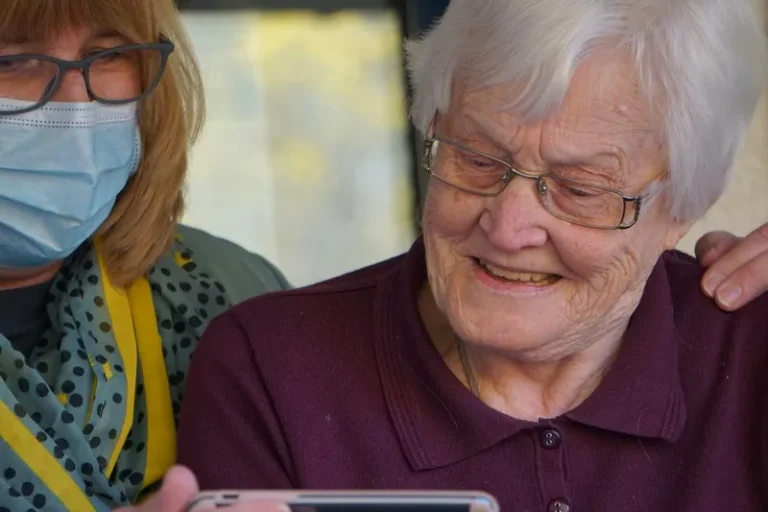Table of Contents
- Historical Background
- Core Principles of Radical Social Work
- Key Elements in Radical Social Work Practice
- Examples of Radical Social Work in Action
- Critiques and Challenges
- Contemporary Relevance
- The Value of a Radical Perspective in Social Work Education
- Looking Ahead
Radical social work is a branch of social work practice that challenges conventional approaches to problem-solving by focusing on the systemic, structural, and political dimensions of social issues. This perspective is grounded in a commitment to transforming societal power relations and advocating for marginalized populations. While conventional social work models often prioritize short-term remedies or individual-level interventions, radical social work emphasizes collective action, grassroots organizing, and social change. This approach holds that social problems cannot be fully understood—or effectively addressed—without considering how macro-level factors such as economics, political policies, and cultural beliefs shape the everyday experiences of individuals and communities.
Radical social work is not merely an offshoot of progressive thought in the social services; it is a deliberate rejection of the status quo. Practitioners and advocates within this movement argue that traditional social work can inadvertently reinforce existing power structures by focusing predominantly on adaptation and coping strategies. Radical social work aims instead to tackle the root causes of social injustice—poverty, discrimination, and systemic oppression. It underscores the urgency of social transformation through collective empowerment and demands that social workers align themselves with social movements that seek to reshape the societal landscape.
Historical Background
Radical social work as a term began to gain currency in the late 1960s and early 1970s amid a period of global social and political upheaval. Civil rights movements, feminist movements, anti-war protests, and labor struggles were transforming social consciousness. Within this climate, social workers and community organizers increasingly questioned the traditional methods that emphasized clinical interventions and individual therapy. They began formulating new approaches that acknowledged the significance of structural factors—particularly class, race, and gender—in contributing to social problems.
The theoretical underpinnings of radical social work draw from a multitude of critical perspectives, including Marxism, feminism, and anti-racist thought. Thinkers from these schools of thought pointed out the ways in which capitalism, patriarchy, and racial hierarchies served as the foundational forces shaping both personal hardships and societal crises. Early radical social workers borrowed heavily from these critiques, advocating for social work to move beyond bureaucratic processes and engage directly with social activism. In these formative years, radical social work practitioners became closely tied to grassroots movements, forging alliances with labor unions, community organizations, and civil rights coalitions. These connections enabled them to gain a more robust understanding of how oppression and inequality manifested in the daily lives of community members.
Core Principles of Radical Social Work
Challenging Structural Inequality
One of the most defining features of radical social work is its unwavering focus on dismantling structural inequality. Social workers in this tradition argue that problems such as poverty, inadequate housing, or lack of access to healthcare cannot be fully understood in isolation; they must be connected to broader economic and social systems that perpetuate deprivation. Rather than attributing individual failures to lack of effort or moral deficiencies, radical social work situates these challenges within the context of systemic injustices.
By shifting the lens from individual pathology to collective circumstances, radical social workers highlight how limited educational opportunities, systemic racism, wage stagnation, and austerity measures converge to create enduring forms of inequality. Practitioners aim to correct these imbalances by collaborating with communities to promote political participation, foster grassroots leadership, and advocate for policy changes that go beyond marginal reforms.
Empowerment and Participation
Empowerment is a central principle in the radical social work approach. This principle posits that individuals and communities have the inherent capacity to understand and address their own circumstances. Instead of viewing service recipients as passive clients in need of professional expertise, radical social work challenges social workers to become facilitators who help communities identify resources, build networks, and engage in collective action.
Empowerment goes hand in hand with participation. Radical social workers seek to mobilize and galvanize collective energy. They encourage individuals to join in communal decision-making processes, thereby cultivating autonomy, solidarity, and collective efficacy. When communities unite to advocate for their rights—whether housing rights, labor protections, or educational reforms—this collective effort is seen as both a practical tool for immediate improvements and a transformative force for long-term social change.
Political Consciousness and Advocacy
A key difference between radical social work and more conventional approaches is the explicit political consciousness. Radical social workers argue that many social issues stem from power imbalances rooted in political decisions. Therefore, addressing these issues effectively requires recognizing their political dimensions. For example, challenges such as housing shortages, environmental degradation, and health inequities often tie back to political agendas, budgetary allocations, and corporate power.
Radical social workers not only acknowledge these power dynamics but also actively engage in political advocacy. This can include lobbying for policy reforms, supporting social movements, or even participating in civil disobedience. The goal is to forge systemic changes that dismantle entrenched hierarchies of power, thereby promoting a more equitable distribution of resources.
Community-Centered Practice
While conventional social work often focuses on case-by-case interventions, radical social work embraces community-centered practice. This means that rather than isolating problems within individual clients, social workers are encouraged to identify communities that share common problems and experiences of oppression. By joining forces with local groups, activists, and other stakeholders, radical social workers can engage in collective solutions that have a broader impact.
In practical terms, this might involve organizing community forums, establishing mutual support networks, or creating neighborhood-based initiatives that respond to specific issues such as food insecurity or child welfare. Community-centered practice affirms that people are experts in their own lives. The role of the social worker is to bring diverse stakeholders together, facilitate joint decision-making, and leverage communal resources to promote sustainable transformation.
Key Elements in Radical Social Work Practice
Grassroots Engagement
Radical social work places great value on grassroots engagement, seeing it as the lifeblood of meaningful social change. Instead of imposing top-down interventions, practitioners immerse themselves within communities to collaboratively identify priorities and design approaches. This hands-on, participatory ethos stands in contrast to models that rely on bureaucratic or technocratic solutions, which can sometimes disregard local insights.
Collective Action
Collective action is seen as crucial for challenging entrenched systems of oppression. Many radical social work initiatives entail working with labor unions to demand fair wages, collaborating with advocacy groups to fight discriminatory housing practices, or partnering with environmental activists to address the disproportionate impact of climate change on vulnerable communities. Such collective efforts underscore the principle that systemic problems require systemic solutions.
Reflexivity and Self-Examination
Radical social workers frequently emphasize reflexivity, acknowledging the importance of self-examination in mitigating biases and power differentials. Practitioners are encouraged to interrogate their own positions of privilege and question how their professional role might inadvertently uphold the status quo. Through ongoing reflection, social workers can ensure their practice remains anchored in ethical principles of equality, justice, and solidarity.
Collaboration with Other Movements
Radical social work does not exist in isolation. It thrives on intersectionality and the synergy created when multiple movements—such as feminist groups, anti-racist coalitions, LGBTQ+ advocacy, and disability rights organizations—come together to challenge overlapping oppressions. Radical social workers frequently partner with these movements to push for policy changes that reflect the diverse needs and perspectives of marginalized groups.
Examples of Radical Social Work in Action
Tenant Rights Advocacy
In many urban areas, skyrocketing rent prices and gentrification have made stable housing increasingly inaccessible. Radical social workers, in partnership with tenant organizations, often organize rent strikes, provide legal assistance, and demand policy reforms that protect tenants from exploitative practices. By collaborating with these community-led efforts, social workers can help shape legislation that prioritizes the right to safe, affordable housing.
Community Health Campaigns
Get the full article AD FREE. Join now for full access to all premium articles.
View Plans & Subscribe Already a member? Log in.





